Karachi Literature Festival: Too many divides to bridge
Each panellist had a division of their own to talk about.

Karachi Literature Festival: Too many divides to bridge
However, what could not be deducted for sure was what divide would be talked about. Interestingly, when the session went underway, it became clear that it was not just the audience that was faced with this mystery - each panellist chose to shed light on a divide of their choice.
English and Urdu
Writer and blogger Raza Rumi, who was moderating the discussion, began by taking the audience back to the first Karachi Literature Festival and how it was criticised for mainly revolving around literature in the English language and not laying any emphasis on Urdu writings and thought. He spoke about how there are a number of perceptions about Urdu and English writers who differ in style and message, which are perhaps shaped by their location, audience expectation and differing experiences. While Urdu writers are expected to be more connected to the people, there is a general perception that English writers mostly construct their work abroad.
Rumi passed on the mic to the first panellist with a concluding line to his introduction: “If these divides exist, we have to see whether there is even a possibility to remove them. And, if not, should they really be criticised for being different?”
Old and new literature
Urdu writer Kishwar Naheed, who is known for her works on feminism, had a rather stern tone and she started with an almost complaint. Referring to Mohammed Hanif, who was also on the panel, Naheed argued that the younger generation is disconnected with old literature; literature that was written by people who had experienced certain events firsthand that were later told as secondary content by authors like Hanif.
“We were the ones who experienced the events, and authors like Hanif wrote about them,” she explained, saying that now the youth relates to his work but fails to read the older literature.
The writer said that what the sessions at the festival should have aimed to achieve was to make people like Intizar Hussain, a popular Urdu writer, and Mohammed Hanif sit in one room and bring literature from both languages together.
“We have to bridge the gap between old writings and new writings, else we will always have a parallel system,” she said.
Divides within society
Rukhsana Ahmed, known for her translations including a book by Naheed, decided to take the discussion even further away from what Rumi had started with. Ahmed mainly spoke about the racial, ethnic and religious divides that exist in the world. “I thought the discussion was going to be about bridging divides between people, knowing how fractured Pakistan is,” she said.
Ahmed said that she, in her works, had always used literature to bridge differences and that any literature that does not aim to do so is “irrelevant to humankind.” She gave an example of people who fight over the method of cooking daal. “You can either dwell on the differences or you can empathise with their hunger or appreciation of food.”
The haves and the have-nots
Mohammad Hanif, author of “The case of exploding mangoes”, started his talk with the “daal” example used by Ahmed earlier. “Instead of talking about people who cook daal differently, the more important divide exists between those who have daal and those who don’t,” he said.
Also responding to Naheed’s argument about the divide between old and new literature, Hanif argued “the divide is there and not there at the same time. If people hadn’t read the old literature in the first place, how would they be able to write about it?”
The author said that the gap between the rich and the poor was constantly rising and while in the past it was possible to get by with what little one had, it was becoming increasingly difficult. Referring to the importance of tolerance pointed out by Ahmed, Hanif said that he did not see people achieving it as one cannot ask a hungry man who has nothing to eat, to be tolerant towards someone who has a full belly.
Back to the language divide
Coming back to the original topic, Naheed pointed out that such festivals which were focused on English and Urdu literature were not fulfilling the purpose of bridging divides as there were no writers belonging to other languages - Pashtu, Balochi, Sindhi - present in the room. She emphasised on future festivals being held in areas where they are accessible for such people as well.
If the panellists were not enough to digress, there were enough people in the audience who pointed out other divides they thought were more important. For instance, a gentleman remarked that at this juncture, addressing the divide between extremism and liberalism would have been more appropriate, while another member of the audience pointed to the fact that Pakistan itself was a product of a division, which later on was partitioned even more, and so could not achieve any sort of bridging.
Towards the end, while there were several suggestions given to solve the varying divides facing Pakistan today, one thing was sure: there were a lot of divides.




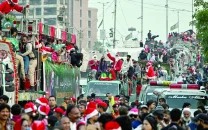



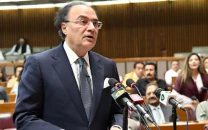
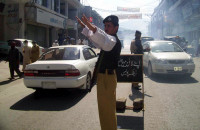
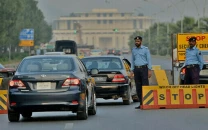
1729471601-0/image-(8)1729471601-0-208x130.webp)
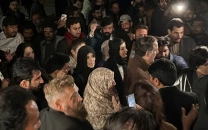






COMMENTS
Comments are moderated and generally will be posted if they are on-topic and not abusive.
For more information, please see our Comments FAQ